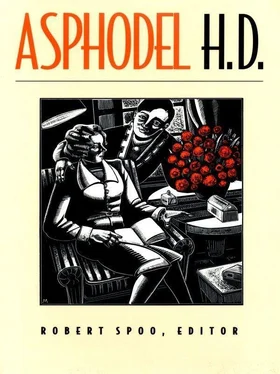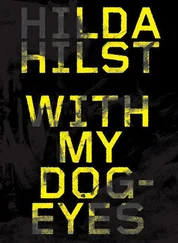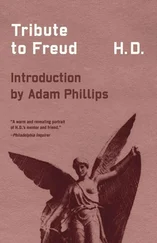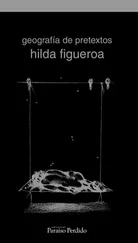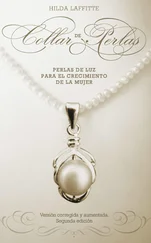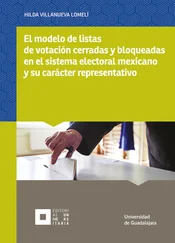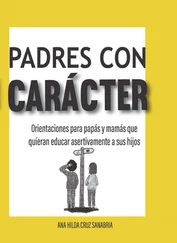An arm pushed back. “I don’t know what’s happened. I waited a long time. There are green dog-woods sweeping over the bed and that photograph on the mantel piece is Jerrold, my husband — husband — husband — you see he is my husband — he wants to look after it — he says he will — husband — but are you — what are you — khaki arm — are you a husband?” The arm pushed Hermione back, she was pushed back and inappositely the arm that was an English khaki arm pushed through green branches of American dog-wood and the heavy scentless blossoms swept like white ivory and heavy froth of white on sea shells over her crumpled coverlet. “Have you no fires here at all?” “O we did have once — no coal now — I am a newcomer. I came only a few weeks ago to be near St. Mary’s nursing home—” “I know all that. Have you — no fires here?” The face above her was the face of a stranger. How had it got here? “How did you get here?” “The people next door said you’d not been moving about for some time — hadn’t heard you. My patient next door, it appears, got used to you, listened—” “Next door? Where am I?” Next door. That was Lilian and the Grex girls and stealing lilacs and the dog that had puppies and the several kinds of butterflies and “you know my grandfather always knew them — all their names. We had a glass case of them hanging over his desk — and the bald-headed eagle—” The face was a strange face but not strange for it appeared over the top. . over the top. . the face appeared over the top — khaki, neat collar, nice collar, elegant cuff. “What is this on your cuff?” “It’s wings — air service — I’m out on special duty-epidemic—” Face that neither smiled nor scolded, just looking at her while the arms held her down, while the hands, thin hands, brown hands smoothed the coverlet, “I’ll send the nurse in here. . my next door patient’s better.”
“No. But don’t go.” Hermione realised now in a moment a great gap. There was a gap. A gap that must be filled. Her hands reached up and her hands clung to khaki — it must be Jerrold, they all looked like that and it was Jerrold and anyone would do but no one would do, never the man in the next room whom she had smiled at once on the stairs and is that what had saved her? Was it Morganlefay who had smiled that had saved her? You never know what will, what is going to save you. You sneak through life, up and down stairs and the wall paper was a funny bright rose-salmon but she had rather liked it, on the stairs, brightening the stairs, clean little house, little house where they had taken her, let her have a room for a few weeks while she waited as Beryl had run her out (she must be all right, “yes I have a husband”) in the motor car. Little house that had been rather funny and clean and full of people that hadn’t mattered, that Hermione had seen through a mist, through the gold gauze that was the aura of Morganlefay who was waiting, of Morganlefay who would morganlefay it to the very bitter last end, smiling at someone on the stairs that hadn’t mattered, that now mattered. In life you never know who will, who won’t matter. They descend, they fall, they rise, they swim in and out of your life for life is the swaying up and the swaying down of great forest branches and clinging to life, to Jerrold, to khaki shoulders, Hermione realized that at last, at last she was lost, for clinging to khaki shoulders she realised that in all those months (nine now almost) she had had no one, no one’s shoulders, that’s wrong. But of course Morganlefay would be like that, run away, be a queen in the forest; it can’t matter if men don’t want you, Undine for a small Undine wants you. No one wants you. No one wants you. But someone does. Someone did. Someone was lonely, a little man who had been in munitions who had the room next door. Had no one ever, ever smiled at him that he must treasure a ghost smile, the smile of a mere outsider, a half-creature, an Undine, an Oread? Do men get so lonely that they must love an Oread? There are women, women, women, women in the street, on the stairs, in railway carriages brushing past you, brushing past you on the stairs little man. You are a little man. Why did you smile and why did you listen? Woods bend, woods bend. The arms were strong but thin and pushed her away, away. O don’t you push me away. If you push me away I know that’s the last. I know then that I am pushed away forever. Don’t push me away. I’m married. “My — husband — is — in France.” Khaki. Khaki. It would save her. It must save her. The wings on his wrist were wings. He wasn’t a man. He was more than a man being less than a man, being an angel. Less than a man he was a man, he was an Angel. Azrael. He was a doctor. Doctors have to do things like this, shutting down eyes. If he put his fingers on her eyes, she would shut them, never, never open them. If he put his fingers on her eyes, she would shut them, never open them. She wouldn’t let him. Her hands slid from smooth thin shoulders and slid down to wrists and clung to fingers. “My — husband — is — in — France.” The thin fingers drew away, drew away, drew away, if he pushed her away now, the one man to whom she had clung, toward whom she had reached in all these months, she would be dead — float down the river — be quite happy. Man, men, men, men, men. Guns, guns. The guns had stopped or was it a heart? Trees wafted great branches and if he pushed her away she would be lost but she could be lost for the twisted little man who had been in munitions and hadn’t wanted to go home and had kept on his room here perhaps he hadn’t a home, what is a home, who was gruff and common had heard her not moving. Were one’s last moments then of so, so great importance? The little man in the next room was a sort of little Buddha, he increased, great in magnitude. He had heard her open her cup-boards, heard the rattling of the curtain rings, heard her spilling out her tooth brush water. The little man had heard her pull her chair forward, had heard her drop her book or heard her scraping in the far corner (which was to him the near corner) for slippers on the floor, heard her move and walk out, not heard any more. . had he nothing to do but listen? “Why did he listen to me?” Had she said that? Had she thought that? More than the little man who was nobody (who had been in munitions in the next room) was this one. This one was more than the other one for he answered questions, did not ask questions. The little man in the next room was a sort of cherry-wood carved Buddha who watched but this was a different kind of god. He answered all your questions. “Why did he listen?” “He listened as invalids have nothing to do but listen”—had answered her question not scolding her, not pushing her away, holding her shoulders, smoothing out the bed clothes. . “you must be — very — careful—” Now if he scolded her she would go away, drift away. It would all be very simple. He might scold her and she would drift away like cutting the cable — of — a boat — of a canoe. Canoe drifts under dog-wood blossoms and the boughs of trees arch over water, the salt creek, we can go on and on and on, then leave the canoe and tramp that half mile inland for the water lilies. Water lilies had grown near salt pools, across dunes. . sand. “Why must — I—be — so — careful?” Of course one must be, the boat might upset at a breath, don’t let the paddle tangle in those weeds, dangerous, it’s scraping pebbles. . dangerous. . canoes — water lilies just beyond—“Why — must — I be so — careful?” Pushing her down, pushing her down — she would drown in water lily petals — just the way to drown—“you must — remember—” Remember. Mnemosyne the mother of the muses. One, two, three to nine. Nine muses. You must be very careful for the nine muses dance, clasp hands in a ring — mustn’t miss the dance, ring, nine — nine — nine— “Why?” Ask it. Ask it for you have — forgotten.
Читать дальше
